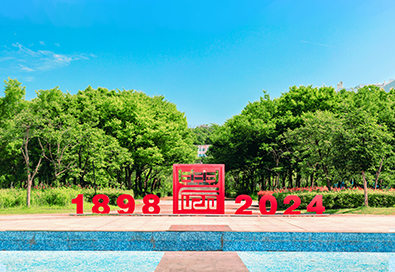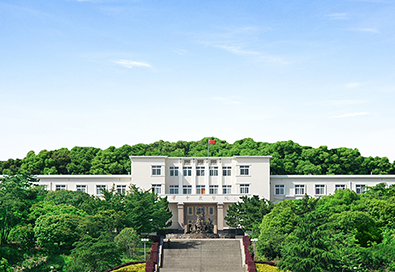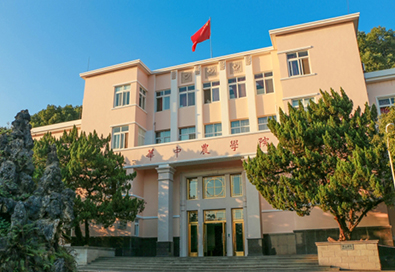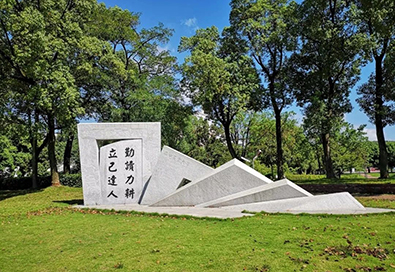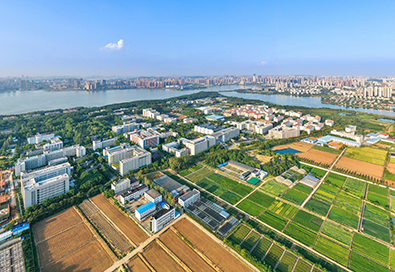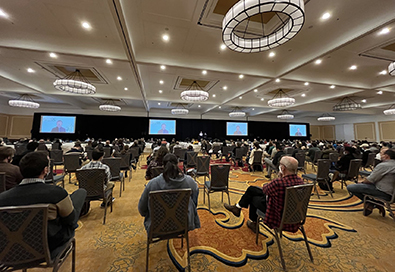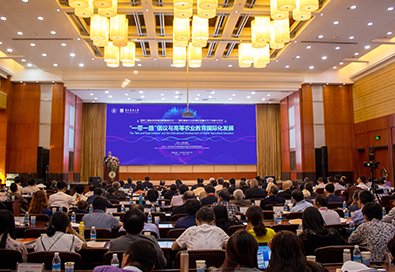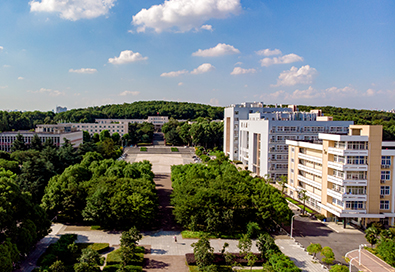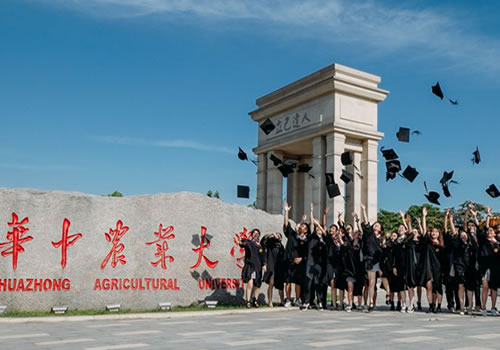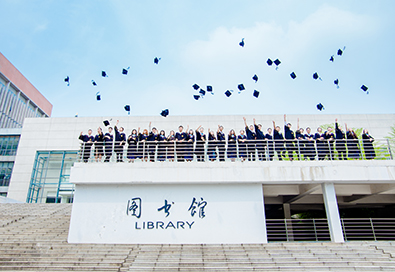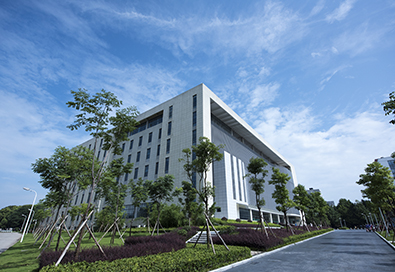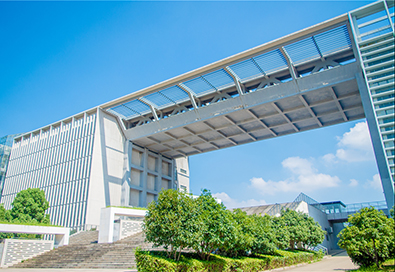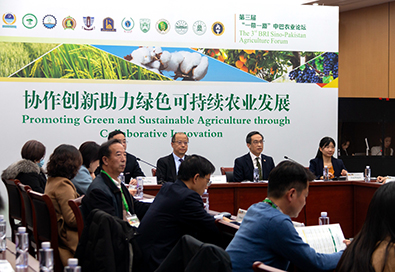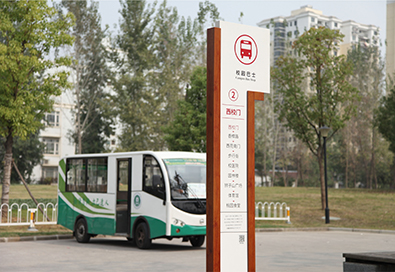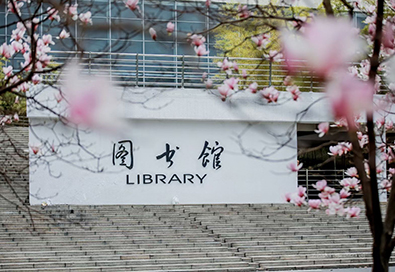Grain and oil crops are easily infected by various pathogens during their growth. Traditionally, the approach to solve it relies on pesticides which are effective but may lead to drug resistance of pathogens. So is it possible to improve the plants' own disease resistance?
On May 9, at the wheats demonstration base in Maogang village, Xiangyang city, Hubei province, a field visit themed "Applying plant-based vaccines (PBV) to increase disease resistance and yield of wheats" was held by HZAU and Hubei Hongshan Laboratory. A panel of Kang Zhensheng, Bai Lianyang and Zhang Xianlong, the members of Chinese Academy of Engineering conducted an evaluation of the application effects of the vaccines.
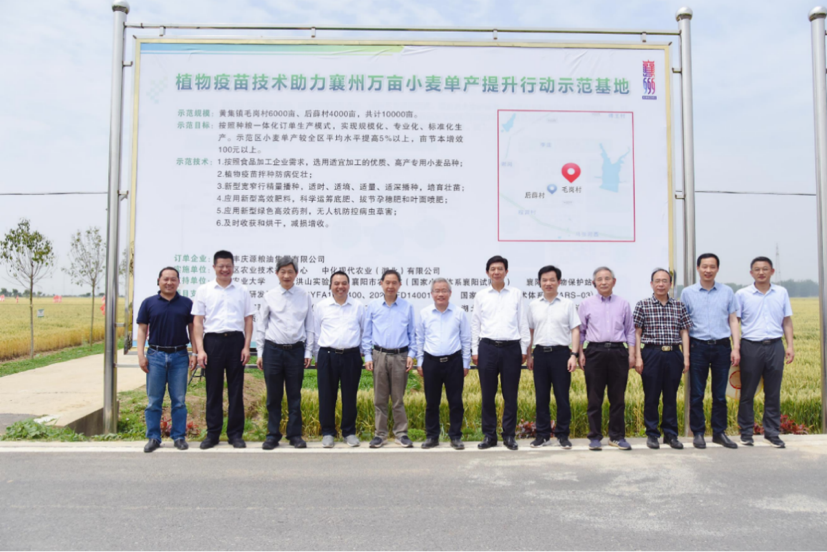
The panel at the wheat demonstration base (Photo/Jiang Chaochang)
"The application of PBV for seed dressing shows stronger resistance than the control group, with significantly fewer cases of fusarium head blight. It also increases tillering and yield, and results in fuller ears, which promises a bumper harvest," said Wang Xizhao, a major wheat grower in Maogang Village.
"As the proverb says, the enemy of my enemy is my friend. Research and application of beneficial microorganisms for biological prevention and control enjoys huge potential and broad prospect," said Jiang Daohong, professor from the College of Plant Science & Technology of HZAU. He introduced that mycovirus are natural enemies of plant pathogenic fungi. Therefore, PBV mediated by mycovirus can endow crops with broad-spectrum disease resistance, enable simultaneous treatment of multiple diseases, significantly reduce the use of pesticides and fertilizer, and promote crop's roots development. All in all, it not only improves the yield, but also is environmentally friendly and guarantees food safety for humans. With the support of the government of Xiangzhou district, Xiangyang in recent two years, the wheat field demonstration of PBV application was developed. And the demonstration results indicate that it can effectively prevent diseases and increase the yield of wheat.
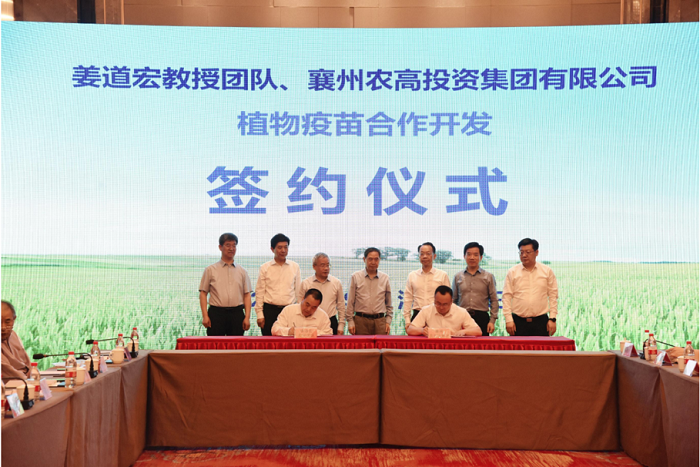
Signing ceremony of cooperation agreement for PBV (Photo/Jiang Chaochang)
Due to the diverse topographical features and climates in Hubei province, the cropping process is more challenging with the higher occurrences of diseases and insect pests, increasing the difficulties for the prevention and control of crop diseases. Li Zongyou, chief agronomist of Hubei Provincial Department of Agriculture and Rural Affairs, stated that PBV, a major innovation and achievement in Hubei’s agricultural sci-tech, is environmentally friendly and effective to promote wheat disease resistance and yield of wheats. He hoped that PBV can be widely applied in Hubei and even nationwide to help farmers reduce pesticide usage and improve wheat yield and quality, so as to contribute to the green development of agriculture. Agricultural departments, research institutions and relevant production entities were encouraged to support the demonstration and application of this technology, jointly promoting the sustainable development of the wheat industry.
Hu Yong, deputy secretary of Xiangyang Municipal Party Committee, said that the government would continue to strengthen cooperation with research institutions and related enterprises, constantly improving the research and development and production efficiency of PBV, and promoting its application. At the same time, they would also provide technical training and guidance for farmers, enabling more farmers to benefit from the new technology.
After filed inspection, reports listening, inquiry and discussion of the application of the vaccine, the panel agreed that the technology of PVB mediated by mycovirus is highly innovative, environmentally friendly and effective for disease resistance and yield increase of wheat, which shows that this tech takes a cutting-edge position worldwide.
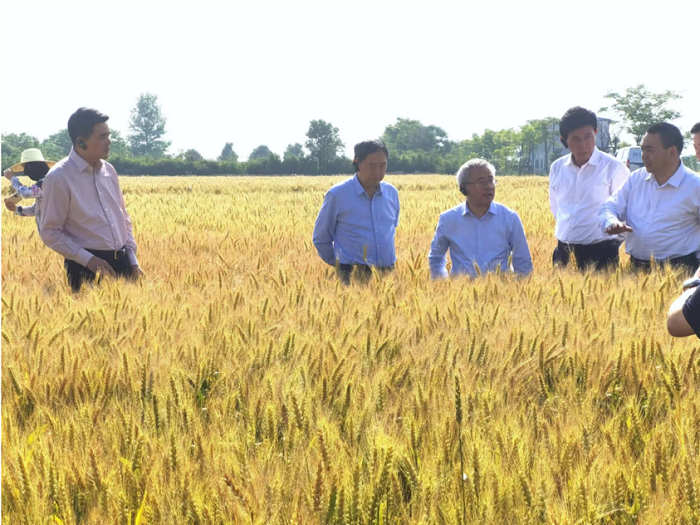
Bai Lianyang, Kang Zhensheng, Zhang Xianlong, Li Zongyou and Jiang Daohong in the wheat field(position: from left to right)
"PBV is highly innovative, effective, convenient and promising," said Prof. Zhang. After field inspection, he expressed great confidence in wheat vaccines and hoped to strengthen basic and application research to make the technology more accessible and user-friendly, enabling farmers to use it more conveniently to increase the wheat yield and incomes.
"As a highly innovative and groundbreaking achievement, PBV represents new productive forces," said Prof. Kang. He also noted that under the background of green development, the introduction of wheat vaccine provided new ideas and technologies for increasing and ensuring wheat production in China.
Source: https://news.hzau.edu.cn/2024/0512/69668.shtml
Translated by: Chen Lin
Proofread by: Huang He
Supervised by: Xie Lujie

